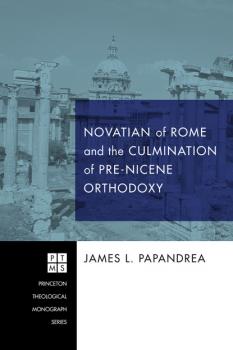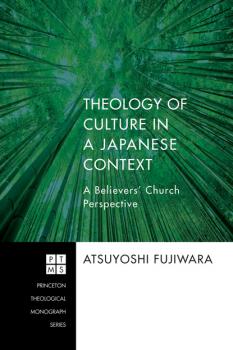Princeton Theological Monograph Series
Скачать книги из серии Princeton Theological Monograph SeriesPhilip's Daughters
This volume brings together twelve scholars from a variety of scholarly fields including biblical studies, history, theology, sociology, anthropology, and missiology in a multi-disciplinary exploration of themes related to women's leadership within the three branches of the renewal movement: Holiness, Pentecostal and Charismatic traditions. These scholars – women and men – from both within and outside the traditions, draw on various methodologies including hermeneutics, ethnography, critical theory, and historical analysis to explore the experiences and contributions of women from the movement's inception to the present. They keep before us the challenges that still impact women's full participation as equal partners in ministry and leadership on both the American and global scene. The volume looks at the multiple roots of women's marginalization within the renewal movement while suggesting progressive solutions that take seriously the social locations of Pentecostal and Charismatic congregations and the theological foundations on which the movement has been built. At the same time, it locates these discussions within the broader postmodern realities facing the church as it attempts to faithfully live out its witness to the biblical truth that both male and female are created in the God's image and endowed with the capacity to work creatively toward the unfolding of the Kingdom.
An Unexpected Light
"Can poetry matter to Christian theology?" David Mahan asks in the introduction to this interdisciplinary work. Does the study of poetry represent a serious theological project? What does poetry have to contribute to the public tasks of theology and the Church? How can theologians, clergy and other ministry professionals, and Christian laypeople benefit from an earnest study of poetry? A growing number of professional theologians today seek to push theological inquiry beyond the relative seclusion of academic specialization into a broader marketplace of public ideas, and to recast the theological task as an integrative discipline, wholly engaged with the issues and sensibilities of the age. Accordingly, such scholars seek to draw upon and engage the insights and practices of a variety of cultural resources, including those of the arts, in their theological projects. Arguing that poetry can be a form of theological discourse, Mahan shows how poetry offers rich theological resources and instruction for the Christian church. In drawing attention to the «peculiar advantages» it affords, this book addresses one of the greatest challenges facing the church today: the difficulty of effectively communicating the Christian gospel with increasingly disaffected «late-modern» people.
Following Jesus in Invaded Space
Christianity is never just about beliefs but habits and practices-for better or worse. Theology always reflects the social location of the theologian-including her privileges and prejudices-all the time working with a particular, often undisclosed, notion of what is normal. Therefore theology is never «neutral»-it defends particular constructions of reality, and it promotes certain interests. Following Jesus in Invaded Space asks what-and whose-interests theology protects when it is part of a community that invaded the land of Indigenous peoples. Developing a theological method and position that self-consciously acknowledges the church's role in occupying Aboriginal land in Australia, it dares to speak of God, church, and justice in the context of past history and continuing dispossession. Hence, a «Second people's theology» emerges through constant and careful attention to experiences of invasion and dis-location brought into dialogue with the theological landscape or tradition of the church.
Labor's Millennium
Historians have traditionally interpreted the American land-grant higher-education movement as the result of political and economic forces. Little attention has been given, however, to any explicit or implicit theological motivations for the movement. This book tells the story of how the Christian belief of many founders of the University of Illinois motivated their educational theory and practice. Constructing a social gospel of labor's millennium (their shorthand for God's kingdom being enhanced through agricultural and mechanical education), they initially proposed that the university would impart a millenarian blessing for the larger society by providing abundant food, economic prosperity, vocational dignity, and a charitable spirit of sacred unity and public service. Rich in primary-source research, Smith's account builds a compelling case for at least one such institution's adaptation of an inherited evangelical educational tradition, transitioning into a new era of higher learning that has left its mark on university life today.
The Role of Women's Experience in Feminist Theologies of Atonement
A strong critique of traditional atonement theology is found in the work of many contemporary feminist theologians. This approach, in large part, is related to the notion of women's experience–a category that is used widely within feminist theology. But what is women's experience and how does it affect feminist theology, particularly views on the atonement? The category of women's experience is pivotal to feminist theology, yet its use may lead to models of atonement that place excessive stress upon the subjective element of Christ's saving work thereby neglecting to address adequately the objective aspects of the cross. This book focuses on the methodological issues regarding the category of women's experience generally, its definition and use in feminist theology, with a more detailed analysis of its use in the context of feminist theologies of atonement. Utilizing the work of a wide variety of feminist theologians in conversation with theologies of experience, this work attempts to understand the role of women's experience as it shapes feminist views on the atonement, noting the strengths and limitations of feminist approaches to soteriology.
On Faith, Rationality, and the Other in the Late Middle Ages:
On Faith, Rationality, and the Other in the Late Middle Ages is an investigation of Nicholas of Cusa that seeks a deeper understanding of this important medieval intellectual and his importance for us today. One of Gergely Bakos's primary aims in this study is to understand Nicholas of Cusa's important and underexamined dimensions of his approach to dialogue with Islam. The framework and the methodology that informs this investigation was inspired by the late Professor Jos Decorte (1954-2001), a Flemish philosopher and mediaevalist at the Catholic University of Leuven in Belgium. Bakos carefully exposits his method of approaching medieval thought (Part One) and then applies and tests this method in practice (Part Two). The most extensive part of this study offers a sketch of the historical background of Nicholas's dialogue with Islam and investigates what possibilities this approach offers. All of this is placed in dialogue with two other mediaeval approaches to Islam (Thomas Aquinas and Ramon Lull). The final chapters discuss Nicholas of Cusa's project from a perspective offered by his mystical theology. The book culminates in an exploration of the possibilities of Nicholas of Cusa's approach by testing the framework of the study. Finally, the author evaluates the application of his own approach (Part Three). The study ultimately has two purposes: to contribute to a better understanding of Nicholas of Cusa's thought, on the one hand, and, on the other, to test a particular methodology and interpretative framework for the understanding of mediaeval culture.
Novatian of Rome and the Culmination of Pre-Nicene Orthodoxy
Novatian of Rome and the Culmination of Pre-Nicene Orthodoxy is an overview of the development of Christology and Trinitarian doctrine, which reached a plateau with Novatian, the third-century priest of Rome. Here James Papandrea offers an enlightening and thorough treatment of the thought, historical context, and theological influences of Novatian. Included are an assessment of the alternative Christologies of the pre-Nicene period, a survey of Novatian's legacy, and concluding comments on the relevance of his theology and ecclesiology for the contemporary church.
Theology of Culture in a Japanese Context
The Christian faith has always stood in a place of tension between its transcendent nature and the surrounding culture. On the one hand, Christian faith claims to originate in the revelation of God, which transforms culture itself. On the other hand, all such revelation is inevitably received and interpreted by humans in concrete situations. It is no exaggeration to say that two millennia of church history have continually demonstrated the struggle between Christian faith and culture. In an effort to address this struggle, this book explores relevant issues pertinent to the relationship between faith and culture in the particular context of Japan. In this unique work, the context of Japan, well known as a desolate swamp for Christian missions, provides the setting for a re-exploration of issues pertaining to theology of culture. As such, Japan provides both a concrete and challenging context to work out a theology of culture. This book also helpfully illuminates for Western readers some key problems that may not have appeared fully in their contexts yet but will do so as the post-Christendom era continues.
Being Human, Becoming Human
Who are we? What does it mean to be human? What is the purpose of our existence? In our time these continue to be urgent questions. The German theologian Dietrich Bonhoeffer thought deeply about these questions out of a desire to understand the importance of Christ and the incarnation for modern culture. His conviction that Christ died for a new humanity is at the core of his theological anthropology. Bonhoeffer's Christ-centered, Trinitarian theology establishes the intrinsic sociality of humanity as made in the image of God.
Being Human, Becoming Human assembles a distinguished and international group of scholars to examine Bonhoeffer's understanding of human sociality. From the introduction of his dissertation, Sanctorum Communio, where he notes «the social intention of all the basic Christian concepts,» to his final writings in prison, where he describes Christian faith as being for others, the theme of human sociality runs throughout Bonhoeffer's works. This theme links Bonhoeffer with contemporary concerns in theology, philosophy, cultural studies, and science regarding human reason, human nature, and their socio-cultural expressions.
Vital reading for Bonhoeffer scholars as well as for those invested in theological debates regarding the social nature of human being, the essays in this volume examine Bonhoeffer's rich resources for thinking about what it means to be human, to be the church, to be a disciple, and to be ethically responsible in our contemporary world.
Where Are the Poor?
The Ecclesial Base Communities (CEBs) emerged in the wake of Latin American liberation theology and are often referred to as «the Church of the Poor.» This book, however, addresses whether or not CEBs are indeed the Church of the Poor today. It is an open question now if Pentecostalism has in fact become the new church of the poor. To answer this question Philip Wingeier-Rayo conducted a one-year ethnographic study of both movements in a marginalized barrio in Cuernavaca, Mexico. Using the anthropological method of participant-observer, the author studied a Roman Catholic Church and a Pentecostal Church–just 100 yards apart–compiling surveys, life interviews, and field notes to relay his findings. For those interested in liberation theology, Pentecostalism, new religious movements, or the influence of religion on society, this in-depth ethnographic study will be of great interest.









